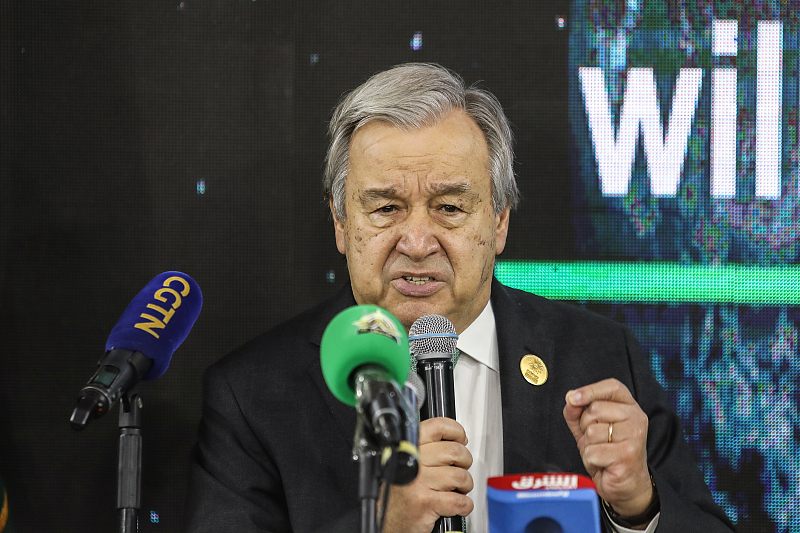UN Secretary-General Antonio Guterres announced a climate action plan on Monday to provide global early warnings on climate change in the next five years.
"It will cost the equivalent of just 50 cents per person per year for the next five years to reach everyone on Earth with early warnings against increasingly extreme and dangerous weather," Guterres said at a summit of world leaders during the ongoing 27th session of the Conference of the Parties (COP27) to the UN Framework Convention on Climate Change.

UN Secretary-General Antonio Guterres speaks to media at the 27th session of the Conference of the Parties (COP27) to the UN Framework Convention on Climate Change in Egypt, November 7, 2022. /CFP
UN Secretary-General Antonio Guterres speaks to media at the 27th session of the Conference of the Parties (COP27) to the UN Framework Convention on Climate Change in Egypt, November 7, 2022. /CFP
The Executive Action Plan for the Early Warnings for All Initiative calls for initial new targeted investments between 2023 and 2027 of $3.1 billion, said a UN report.
"This is a small fraction (about 6 percent) of the requested $50 billion in adaptation financing," Guterres said, adding that it would cover disaster risk knowledge, observations and forecasting, preparedness and response, and communication of early warnings.
The plan was drawn up by the World Meteorological Organization (WMO) and its partners and was supported by a joint statement signed by 50 countries.
While the number of recorded disasters has increased, "half of the countries globally do not have early warning systems and even fewer have regulatory frameworks to link early warnings to emergency plans," Guterres said.
The numbers are even worse for developing countries on the front lines of climate change, specially for least developed countries and Small Island Developing States, he said.
The WMO said on its website that early warning systems are widely regarded as the "low-hanging fruit" for climate change adaptation because they are a relatively cheap and effective way of protecting people and assets from hazards, including storms, floods, heatwaves and tsunamis to name a few.
Source(s): Xinhua News Agency